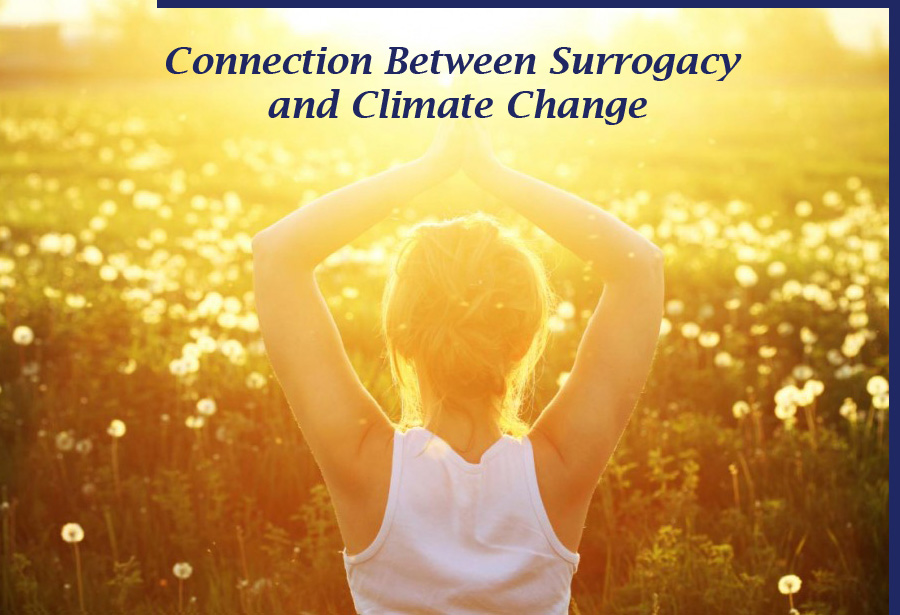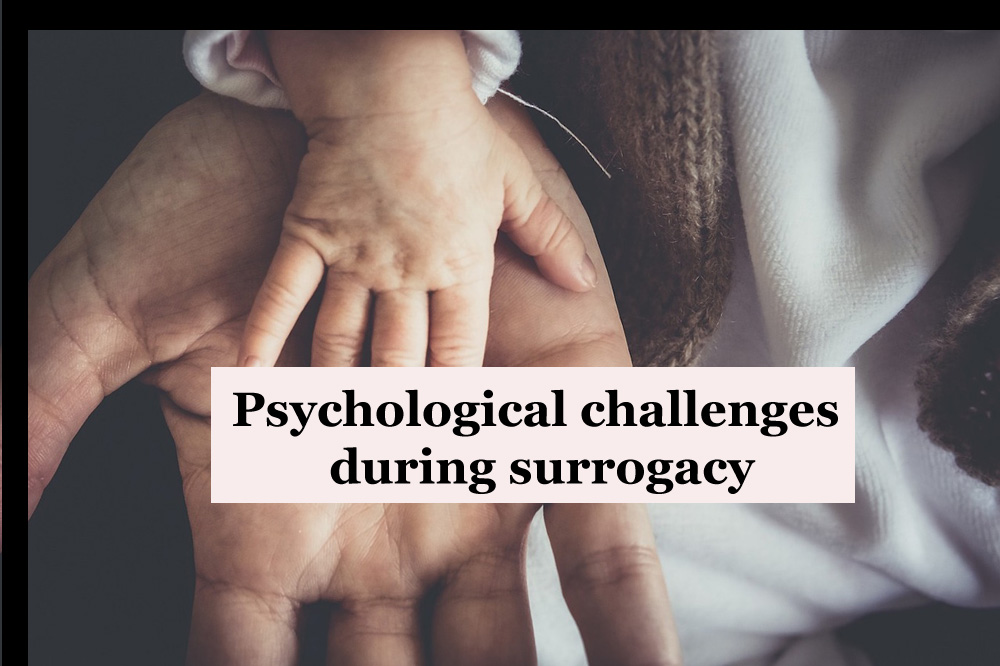Surrogacy and Climate change: is there an interconnection of any sort?
Climate change has started affecting a lot of elements and aspects in our daily lives and the health complications resulting from it are no different. That said, this global issue, characterized by rising temperatures, serious climate crises, and rising infection levels, poses critical risks to human well-being.
That said, one of the less examined but progressively important results of these climate changes is their effect on reproductive health. Here, we will throw some more light on the relation between surrogacy and climate change, and how climate change-induced health complications are possibly driving a rise in surrogacy as a way of family building.
Exploring the Connect Between Surrogacy and Climate Change
The first perspective to consider is the clear connection between Surrogacy and Climate change. That said, recent research in the same regard has shown that increased pollution levels, especially air pollution, can have significant impacts on fertility. Also, contaminants like fine particulate matter and ozone can cause hormonal imbalances and oxidative stress, leading to reduced fertility in both men and women. Furthermore, extraordinary climate situations, which are getting to be more severe due to climate change, can lead to disturbances in healthcare services. Also, this may encourage complicated fertility treatments and secure childbirth.
Besides, new infections rising as a result of climate change, such as those spread by mosquitoes flourishing in hotter climates, can moreover affect reproductive health. Also, a few of these infections have been connected to genuine birth defects, making natural conception and childbirth more risky. On the other side, as these health risks related to climate change increase, more couples and people might turn to surrogacy as a more secure choice for characteristic conception and childbirth.
How does surrogacy come as a safe alternative for many?
Surrogacy offers a reasonable arrangement for those who confront troubles in conceiving or carrying a pregnancy to term due to health complications. Also, within the setting of climate change, it serves as a reference point of trust for numerous who dream of beginning a family but are prevented by the natural impacts on their reproductive health. Moreover, surrogacy includes a surrogate carrying a child for somebody else, frequently utilizing Assisted Reproductive treatment. That said, this course of action can bypass many of the risks related to coordinated introduction to natural pollutants amid pregnancy.
Also, the potential increment in surrogacy due to climate change raises a few moral and legal concerns. Surrogacy, while being a perfect way to parenthood for many, can be complex in terms of ethical suggestions. Also, there are concerns about the misuse of surrogates, particularly in nations where surrogacy laws are less rigid. Additionally, the legal status of surrogacy shifts significantly over the globe, with a few nations prohibiting it by and large and others having a more lenient position. Also, this legal difference can lead to cross-border surrogacy courses of action, which come with their own set of moral and legal challenges.
Paying attention to the International and financial recommendations

Besides, as the request for surrogacy increases worldwide, there may well be a jump in demand for medical sources and experts specialized in reproductive health and surrogacy. Also, this seems to lead to a need for more specialized arrangements for healthcare suppliers and possibly indeed a reevaluation of healthcare strategies and resource allocation on a global scale.
At the same time, the rising demand for surrogacy programs will push individuals to take special care of their reproductive health. While people were not aware of certain health issues before climate change, they are now fully familiar with every infection and disease that may come across due to this issue.
How future be for Surrogacy in a world with a severe climate crisis?
Looking ahead, it’s basic to consider how the relationship between Surrogacy and Climate change will advance. As climate conditions proceed to fall apart, more individuals may turn to surrogacy. Also, this trend necessitates a proactive approach in tending to the ethical, legal, and financial challenges related to surrogacy.
On the other hand, people will be more careful towards their health and will opt for a balanced lifestyle and dietary regimen. This way, they will have better sexual health and even while opting for surrogacy, they will have bigger chances of success to achieve parenthood.
Moreover, policymakers and healthcare experts have to collaborate to guarantee ethical practice in surrogacy, give legal clarity, and make the method more open and evenhanded. Furthermore, there’s a need to address the root causes of climate change to moderate its impacts on human well-being, including reproductive health.
Also, with nations around working to manage the impacts of climate change, we can expect that these severe situations will be minimised. Also, people are getting more aware of the carbon emissions and how they can do something to lessen it all along. That way, we all can work in collaboration while making a difference for the planet. That said, surrogacy will remain a top choice for many to achieve their parenthood goals in the right manner possible.
Final words
In the end, we can say that the potential increase in cases due to health complications from Surrogacy and Climate change could be a multifaceted issue. Moreover, it reflects the broader impacts of degrading ecosystems on human life. Whereas surrogacy offers a way to parenthood for those influenced by these changes, it moreover brings to light a few moral, legal, and financial challenges. Also, tending to these challenges requires concerted efforts from different divisions of society, including policymakers, healthcare experts, and environmentalists. Eventually, handling the root causes of climate change remains foremost to diminish its effect on human well-being and the developing reliance on assisted reproductive strategies like surrogacy.



